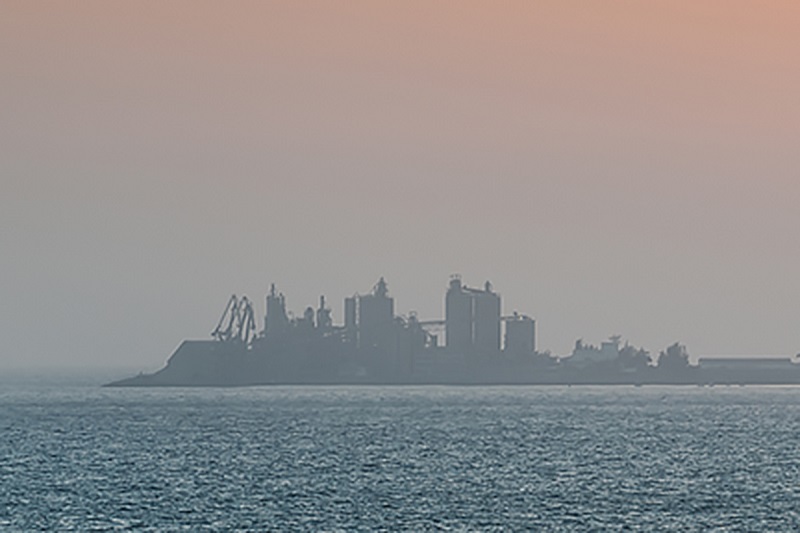EarthTalk®
From the Editors of E – The Environmental Magazine

Elon Musk thinks we can bring the costs of desalination so low that water shortages will be a thing of the past within decades. Credit: Ignacio Ferre Pérez, FlickrCC.
Dear EarthTalk: Why is Elon Musk so blasé about the world running out of water, especially after decades-long droughts and rising temperatures? — P. Dirksen, Omaha, NE
The billionaire entrepreneur and CEO of SpaceX, Tesla and Twitter recently commented on Bill Maher’s show Real Time that “desalination is absurdly cheap,” going on to say that since the surface of the planet is 70 percent water, he isn’t worried about running out anytime soon.
But Musk’s optimism on this topic is countered by environmental leaders who believe that water scarcity is a pressing global issue.
Desalination is the process of removing salt and other minerals from seawater or brackish water to produce fresh water.
The most common method is reverse osmosis, which involves forcing seawater through a membrane that filters out the salt and other impurities.
While its cost has decreased in recent years, it is still more expensive than other sources of fresh water such as collecting rainwater and pumping water from underground aquifers.
Desalination costs also vary depending on factors such as location, energy costs and the size of the plant. In some cases, desalination can be prohibitively expensive.
However, it is true that the world has plenty of water in its oceans and other water bodies.
According to the United Nations, 97 percent of the world’s water is in the oceans (and as such, salty), while just three percent is freshwater.
And of that three percent, two-thirds is frozen in glaciers and polar ice caps, leaving only a small fraction of the world’s water available for human use.
Water scarcity is a pressing global issue, particularly in regions that experience drought or have limited access to fresh water sources.
According to the World Health Organization, around 2.2 billion people lack access to safe drinking water, and this number is expected to increase as a result of climate change and population growth.
Desalination can be a viable solution to water scarcity in some regions, particularly those with access to seawater or brackish water sources. However, it is not a panacea, and there are several challenges and limitations associated with it.
One of the biggest challenges of desalination is its energy consumption.
Desalination plants require a significant amount of energy to operate, typically electricity. This can be a significant barrier in regions with limited access to affordable energy sources or that rely on fossil fuels for energy production.
Another challenge of desalination is its environmental impact.
Desalination can have negative impacts on marine ecosystems and generate greenhouse gases.
The intake of seawater can harm marine life, and the discharge of brine back into the ocean can create high-salinity plumes that can harm marine ecosystems.
Musk’s optimism most likely stems from bullishness on transitioning to renewable energy.
Once we can deploy large scale solar collection facilities at the site of desalination plants, the greenhouse gas and energy cost downsides of desalination mostly disappear.
While such a scenario has only been a dream in recent decades, recent advances in technologies may bring about large scale desalination facilities all over the world in the next few decades.
CONTACTS:
Musk/Maher, rollingstone.com/culture/culture-news/elon-musk-bill-maher-interview-woke-mind-virus-1234725788
New research looks to lower the high cost of desalination, engineering.stanford.edu/magazine/article/new-research-looks-lower-high-cost-desalination
EarthTalk® is produced by Roddy Scheer & Doug Moss for the 501(c)3 nonprofit EarthTalk.
See more at https://emagazine.com.
To donate, visit https://earthtalk.org
Send questions to: question@earthtalk.org
